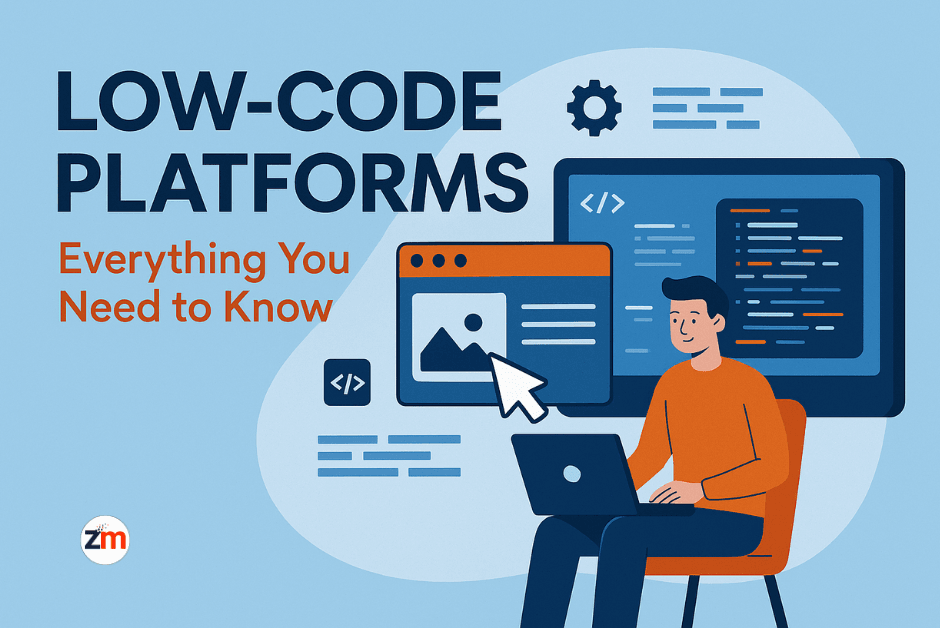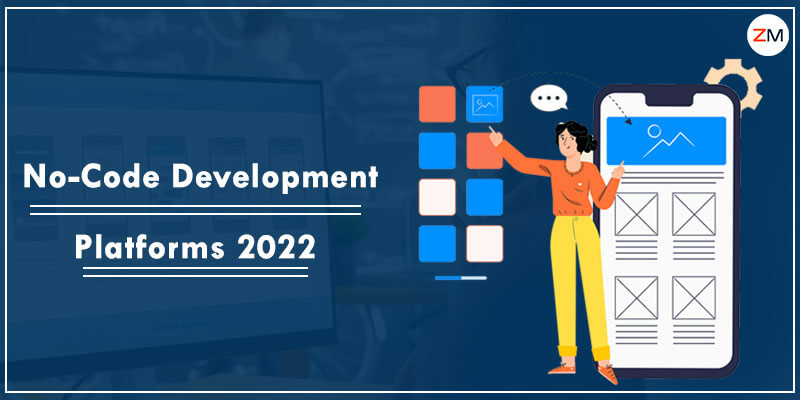Low-Code vs Custom App Development: Which Is A Better Option?

In the modern world, people are always finding new ways to use mobile apps. In 2022, about 6.6 billion people around the world will have smartphones. Last year alone, 230 billion apps were downloaded. App development is a top priority for many businesses, but how can you be sure to get high-quality, profitable apps?
Many companies choose low-code software development because it can be done quickly and is easy to use. Another common way is to make a custom app. This method gives you more design options, but it also requires more technical knowledge and custom solutions.
Researching different ways to build an app is a key part of making a good app and improves ROI by a lot. How do you optimize web and mobile apps so that they bring in scalable revenue and keep getting more and more users? At the beginning, when making an app, businesses usually have to decide between low-code development and custom software solutions.
In some industries, the former is threatening to take the place of mobile app developers because companies like the hands-on design approach and quick turnaround of the former. But is the future of app development low-code? Not quite. It's still a limited design process that can't meet specific needs or solve difficult development problems.
Read on for an overview of both low-code and custom-code app development, as well as a quick comparison that shows when each method is best used. After that, Zestminds will be there to help you with custom application development and more. Don't be afraid to reach out.
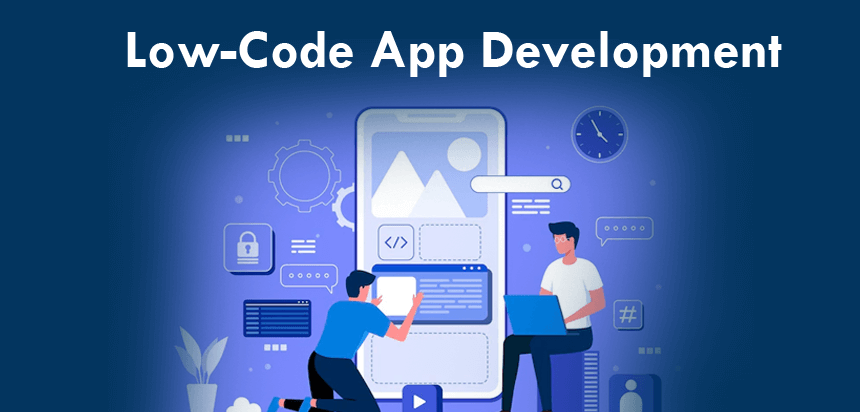
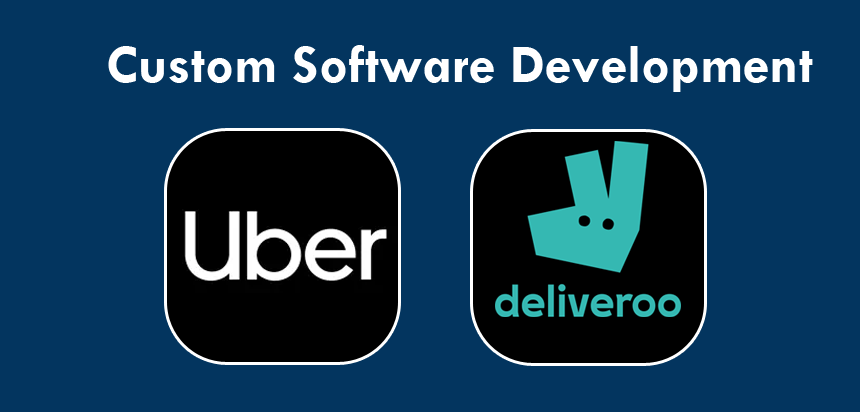
 #1: Business Value
Low-code platforms may be easier and faster to build, but their business value is usually lower than that of custom code development. The low-code development method for making software is limited and may not be able to give apps the complexity they need.
On the other hand, when a business builds a custom application, it can use full software frameworks and tailor-made solutions to different problems or essential needs. In the end, this makes your business more valuable because your product can be made without any compromises.
#1: Business Value
Low-code platforms may be easier and faster to build, but their business value is usually lower than that of custom code development. The low-code development method for making software is limited and may not be able to give apps the complexity they need.
On the other hand, when a business builds a custom application, it can use full software frameworks and tailor-made solutions to different problems or essential needs. In the end, this makes your business more valuable because your product can be made without any compromises.
 #2: Required Coding Skills
Making custom code is an advanced art. Software development teams like the one we have at Zestminds need to know a lot about how different parts of the software work together and have great technical skills to make the best product.
Making software with low-code is easier to do. Businesses don't need to know a lot about complicated coding because the drag-and-drop feature makes it easy to focus on the layout and general needs. With this no-code development process, third-party solutions are used more, so high-level coders aren't needed as much.
#2: Required Coding Skills
Making custom code is an advanced art. Software development teams like the one we have at Zestminds need to know a lot about how different parts of the software work together and have great technical skills to make the best product.
Making software with low-code is easier to do. Businesses don't need to know a lot about complicated coding because the drag-and-drop feature makes it easy to focus on the layout and general needs. With this no-code development process, third-party solutions are used more, so high-level coders aren't needed as much.
 #3: Development Time
It takes time to build a custom app. In addition to designing and coding, businesses need to hire a professional quality assurance tester and do a lot of safety checks. The whole project can take up to six months to finish, but there are ways to speed up the process through software development.
Low-code solutions cut delivery time by a lot. With the drag-and-drop method, businesses can get what they want with less help from other teams or partners.
#4: IP Rights
A custom app belongs to the company that paid to make it. Without relying on low-code software providers, the business and its development partner take care of the whole process from start to finish.
When it comes to intellectual property rights, low-code platforms are trickier. Businesses might have to follow rules set by the low-code provider and technically won't own the whole platform from front to back.
#3: Development Time
It takes time to build a custom app. In addition to designing and coding, businesses need to hire a professional quality assurance tester and do a lot of safety checks. The whole project can take up to six months to finish, but there are ways to speed up the process through software development.
Low-code solutions cut delivery time by a lot. With the drag-and-drop method, businesses can get what they want with less help from other teams or partners.
#4: IP Rights
A custom app belongs to the company that paid to make it. Without relying on low-code software providers, the business and its development partner take care of the whole process from start to finish.
When it comes to intellectual property rights, low-code platforms are trickier. Businesses might have to follow rules set by the low-code provider and technically won't own the whole platform from front to back.
 #5: Security
With a low-code platform, it will be much harder for hackers to break into a custom app. When a business makes an app from scratch, they have full control over security tools and coding solutions that are made just for them. During the development process, security testing will also find any weaknesses or obvious security holes.
Low-code development uses software templates that have already been made, which makes them vulnerable to cyberattacks. So, the security is not strong enough for many companies, especially those that deal with sensitive information.
#6: Maintenance
Because they are so complicated, custom software apps usually need to be updated and maintained on a regular basis. During the launch period, bugs, glitches, and other errors are common, so it's likely that the software will need to be changed. This can sometimes temporarily make a custom app less valuable.
Software development with low-code is much smoother and less likely to have bugs. In general, it is a lot less trouble.
#5: Security
With a low-code platform, it will be much harder for hackers to break into a custom app. When a business makes an app from scratch, they have full control over security tools and coding solutions that are made just for them. During the development process, security testing will also find any weaknesses or obvious security holes.
Low-code development uses software templates that have already been made, which makes them vulnerable to cyberattacks. So, the security is not strong enough for many companies, especially those that deal with sensitive information.
#6: Maintenance
Because they are so complicated, custom software apps usually need to be updated and maintained on a regular basis. During the launch period, bugs, glitches, and other errors are common, so it's likely that the software will need to be changed. This can sometimes temporarily make a custom app less valuable.
Software development with low-code is much smoother and less likely to have bugs. In general, it is a lot less trouble.
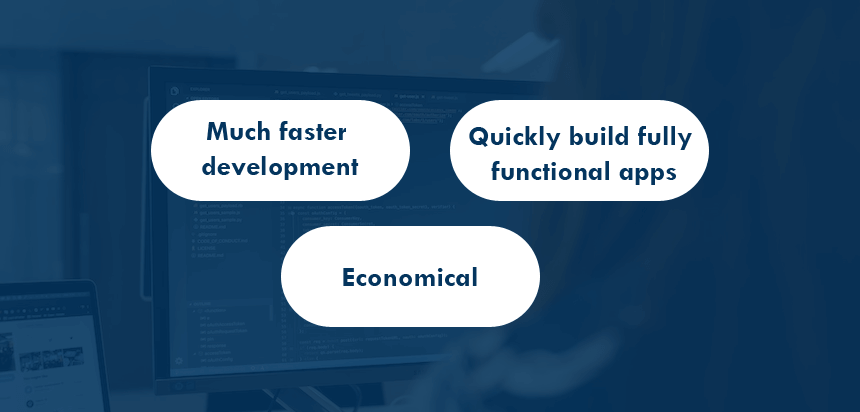
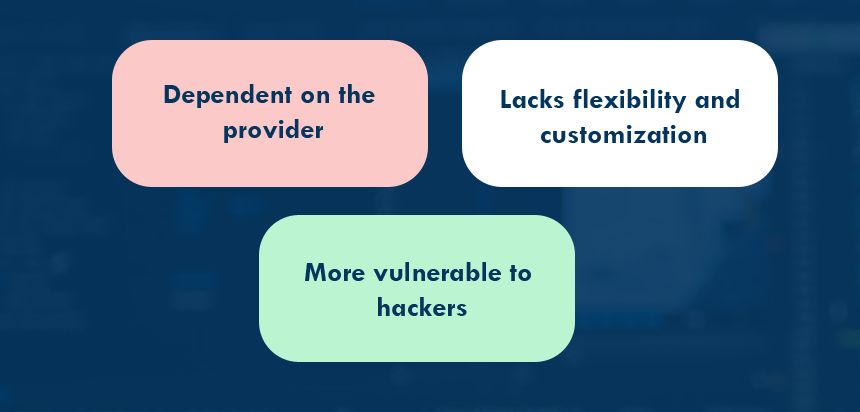
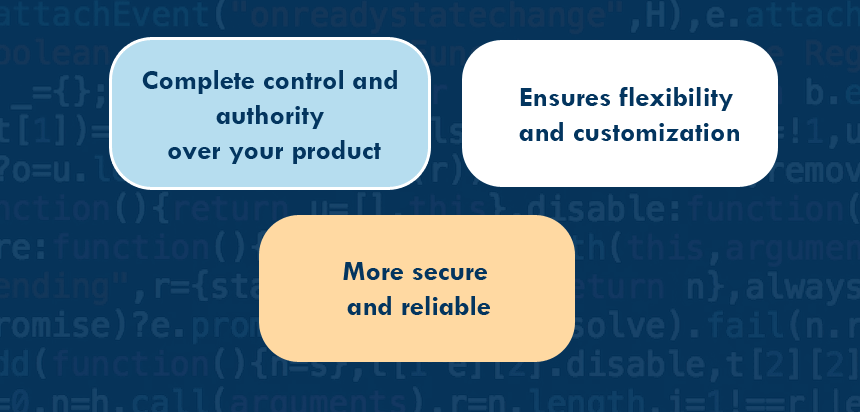



What Is Low-Code App Development?
The low-code development process makes it easy and quick to make software. It is an agile way of writing code that requires half as much knowledge and takes half as long to deliver as custom solutions. It has a drag-and-drop interface that lets businesses choose the layout and features quickly and with little trouble. A low-code solution is easy to use and doesn't cost much. The hosting company manages the app development process because it is easy to use. This cuts down on the time it takes to deliver the app and makes it easier for the business and developer to talk to each other. Low-code platforms are an agile way of making products that can be used in both B2B and B2C situations.
What Is Custom Software Development?
Custom software development is a front-to-back process that uses custom coding to make a one-of-a-kind, tailor-made product. For their complex, multi-use mobile apps, high-end commercial software like Uber and Deliveroo needed this method of coding. Custom development has more features, so it can make strong, forward-thinking products that go against the status quo. For the software development team to reach as many goals as possible, they have to figure out how to code in complicated ways. Because third-party solutions don't limit the full development process as much, there is more room for compatibility, scalability, and personalization. This, in turn, boosts ROI and user satisfaction in general. At Zestminds, our mobile development team is the best in the market and can help you with any custom code development you need.Low-Code vs Custom Software: A Comparison
Comparing low-code and custom software is the first step toward deciding who wins. The following comparison is crucial for business users and developers: #1: Business Value
Low-code platforms may be easier and faster to build, but their business value is usually lower than that of custom code development. The low-code development method for making software is limited and may not be able to give apps the complexity they need.
On the other hand, when a business builds a custom application, it can use full software frameworks and tailor-made solutions to different problems or essential needs. In the end, this makes your business more valuable because your product can be made without any compromises.
#1: Business Value
Low-code platforms may be easier and faster to build, but their business value is usually lower than that of custom code development. The low-code development method for making software is limited and may not be able to give apps the complexity they need.
On the other hand, when a business builds a custom application, it can use full software frameworks and tailor-made solutions to different problems or essential needs. In the end, this makes your business more valuable because your product can be made without any compromises.
 #2: Required Coding Skills
Making custom code is an advanced art. Software development teams like the one we have at Zestminds need to know a lot about how different parts of the software work together and have great technical skills to make the best product.
Making software with low-code is easier to do. Businesses don't need to know a lot about complicated coding because the drag-and-drop feature makes it easy to focus on the layout and general needs. With this no-code development process, third-party solutions are used more, so high-level coders aren't needed as much.
#2: Required Coding Skills
Making custom code is an advanced art. Software development teams like the one we have at Zestminds need to know a lot about how different parts of the software work together and have great technical skills to make the best product.
Making software with low-code is easier to do. Businesses don't need to know a lot about complicated coding because the drag-and-drop feature makes it easy to focus on the layout and general needs. With this no-code development process, third-party solutions are used more, so high-level coders aren't needed as much.
 #3: Development Time
It takes time to build a custom app. In addition to designing and coding, businesses need to hire a professional quality assurance tester and do a lot of safety checks. The whole project can take up to six months to finish, but there are ways to speed up the process through software development.
Low-code solutions cut delivery time by a lot. With the drag-and-drop method, businesses can get what they want with less help from other teams or partners.
#4: IP Rights
A custom app belongs to the company that paid to make it. Without relying on low-code software providers, the business and its development partner take care of the whole process from start to finish.
When it comes to intellectual property rights, low-code platforms are trickier. Businesses might have to follow rules set by the low-code provider and technically won't own the whole platform from front to back.
#3: Development Time
It takes time to build a custom app. In addition to designing and coding, businesses need to hire a professional quality assurance tester and do a lot of safety checks. The whole project can take up to six months to finish, but there are ways to speed up the process through software development.
Low-code solutions cut delivery time by a lot. With the drag-and-drop method, businesses can get what they want with less help from other teams or partners.
#4: IP Rights
A custom app belongs to the company that paid to make it. Without relying on low-code software providers, the business and its development partner take care of the whole process from start to finish.
When it comes to intellectual property rights, low-code platforms are trickier. Businesses might have to follow rules set by the low-code provider and technically won't own the whole platform from front to back.
 #5: Security
With a low-code platform, it will be much harder for hackers to break into a custom app. When a business makes an app from scratch, they have full control over security tools and coding solutions that are made just for them. During the development process, security testing will also find any weaknesses or obvious security holes.
Low-code development uses software templates that have already been made, which makes them vulnerable to cyberattacks. So, the security is not strong enough for many companies, especially those that deal with sensitive information.
#6: Maintenance
Because they are so complicated, custom software apps usually need to be updated and maintained on a regular basis. During the launch period, bugs, glitches, and other errors are common, so it's likely that the software will need to be changed. This can sometimes temporarily make a custom app less valuable.
Software development with low-code is much smoother and less likely to have bugs. In general, it is a lot less trouble.
#5: Security
With a low-code platform, it will be much harder for hackers to break into a custom app. When a business makes an app from scratch, they have full control over security tools and coding solutions that are made just for them. During the development process, security testing will also find any weaknesses or obvious security holes.
Low-code development uses software templates that have already been made, which makes them vulnerable to cyberattacks. So, the security is not strong enough for many companies, especially those that deal with sensitive information.
#6: Maintenance
Because they are so complicated, custom software apps usually need to be updated and maintained on a regular basis. During the launch period, bugs, glitches, and other errors are common, so it's likely that the software will need to be changed. This can sometimes temporarily make a custom app less valuable.
Software development with low-code is much smoother and less likely to have bugs. In general, it is a lot less trouble.

Advantage of Low-code development
1. Much faster development Since less code is used in low-code app development, the process takes less time. Most of the time, though, extra customization takes a little more time. Still, such fast growth can be good for new companies that want to get their product on the market as soon as possible. 2. Quickly build fully functional apps Since low-code solutions come with predefined modules, it is easy to finish the software and all of its functions quickly. 3. Economical Low-code solutions are much more cost-effective because they don't need as many developers and only charge a small fee to use the service needed to build them. But there are times when you need a professional software developer to make changes. Even so, no-code development is still more affordable than custom coding.
Disadvantages of Low-code development
1. Dependent on the provider It might be difficult to download and move the source code of your final product to another platform or hosting if your service provider or integrator uses the low-code method. 2. Lacks flexibility and customization Because low-code development uses pre-built modules and little to no code is written, low-code development is inherently limited in terms of flexibility and customization. Your product may not be able to differentiate itself from the competition and stand out from the crowd without customization. 3. More vulnerable to hackers It can be undesirable and vulnerable to build an application using Low-code, since it relies on the service provider. Your product can also be exploited and compromised by hackers.
Advantage of Custom Code Development
1. Complete control and authority over your product You have full control over the software you make when you use customized application software development. Any function or feature that doesn't fit with your vision can be changed. So, you can make any choice you want and are less reliant on solutions from outside sources. Even if you use third-party frameworks or libraries, the final product you build is yours and can be protected, white-labeled, or even sold as you see fit. 2. Ensures flexibility and customization As software functions and features are written by hand, and the whole software is made with code written from scratch, custom development makes sure that there is a lot of room for flexibility and customization. It also lets you make unique features and functions that will help you make your product fit your needs and make you stand out in the market. 3. More secure and reliable Since custom code development starts from scratch and doesn't depend on a third party, you have full control over the application you make. To protect your product from hackers, you can also use advanced security solutions and encryption. Custom software development is therefore one of the safest and most reliable ways to make a software product.
Disadvantages of Custom App Development
1. Time-consuming Since low code means writing code from scratch, there is a lot of planning, designing, and iterating to do before development even starts. Also, if a company wants to make software, it needs to use a software development life cycle that fits the size of the project. This includes things like weekly meetings, bug fixes, and demos. The development process can take weeks, months, or even years, so there is a chance that the product will become outdated as new technologies come out. 2. Costly affair For custom code development, coders must build the product in a certain amount of time. Such a change needs coders with a lot of experience who can take on challenges with ease. Even though it's the best choice in the long run, it can be expensive to hire experienced coders. 3. Return on investment Since developing custom code costs a lot of money, the return on investment is a key factor in determining the success of the company. Sometimes, it can take months or even years for the money spent on product development to pay for itself and start making money. This makes custom code development a hard choice for startups with limited funds.When Should You Choose A Low-Code Solution?
Low-code software solutions are great for businesses that want operational dashboards, workflow apps, or employee portals that work behind the scenes. Low-code is a way for companies to speed up their digital transformation because it is easy and quick to set up. This way of making apps also keeps them up to date, so they don't need to be completely redesigned. Low-code solutions are often used by companies to quickly update old systems, reducing operational costs and making workflow more efficient. It's a simple example of why software design is so important to businesses all over the world.When Should You Choose Custom App Development Over Low-Code Solution?
A custom code solution is best for organizations that want a complex application that is made to fit their needs. Even though software development ship times are longer, the pros of more customization, security, and ownership of intellectual property more than make up for it. Custom apps usually have a higher ROI because they are built in a unique way and have a wider range of options. They are more adaptable and easy to change, and they work better with digital ecosystems and company networks that already exist. Low-code software is the right choice for your business if you need an app that doesn't fit the mould or that deals with sensitive information.Summary
Low-code and custom solutions both have their pros and cons. The best way to deliver apps is to know how your business needs affect the decision as a whole. Are you looking for a quick delivery and a less complicated way to build? If so, you might want to look into low-code software. Customized solutions work better for projects that are more complicated, especially for business-to-consumer software like Uber or the new generation of fintech apps. At Zestminds, our top software development teams make highly scalable apps that will improve your return on investment (ROI) and your business's chances in general. Get in touch if you want to know more, and let's get started with custom coding together.

Shivam Sharma
About the Author
With over 13 years of experience in software development, I am the Founder, Director, and CTO of Zestminds, an IT agency specializing in custom software solutions, AI innovation, and digital transformation. I lead a team of skilled engineers, helping businesses streamline processes, optimize performance, and achieve growth through scalable web and mobile applications, AI integration, and automation.
Stay Ahead with Expert Insights & Trends
Explore industry trends, expert analysis, and actionable strategies to drive success in AI, software development, and digital transformation.
